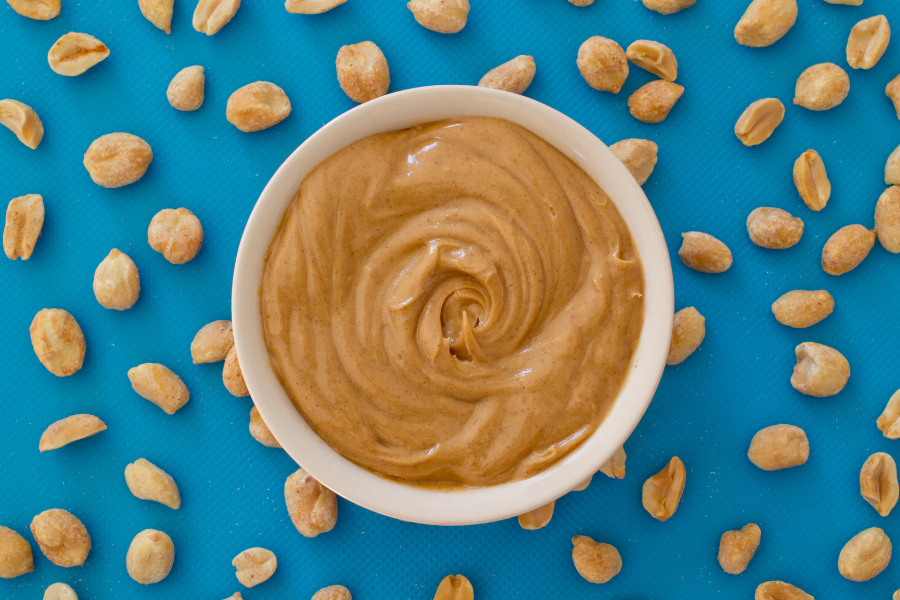Introduction
If you have landed on this blog, you are most likely a dog lover like us! And as a dog lover and dog owner, you are the steward of their health, so it is only natural to think about what is good and what could be harmful for your pup to consume.
With so many foods and supplements out there deemed either good, or harmful to dogs, it's natural to question whether your pet can enjoy some of your favorite treats.
One common query (wayyy more common than you may think) is, "Can dogs chow down on marshmallows?" We will be diving into this answer, and more - uncovering the potential risks, as well as providing safer (yet still tasty) alternatives!
The Allure of Marshmallows
What Are Marshmallows Made Of?
They are the oh-so popular fluffy, puffy, sweet treats that we grew up with. But what the heck is in them? If you guessed sugar as one ingredient - ding ding! You are right. Marshmallows usually contain some combination of sugar, water, corn syrup, and gelatin. Some brands do use other ingredients, including artificial flavoring or coloring (boo!).
Why Dogs Love Sweet Treats
We are not so different, humans and dogs. And one way in which we are definitely not different is in our love of sweet thangs (say that with a southern twang). This is why they like marshmallows! Just because they like them does not mean that they should have them, however.
The Occasional Temptation
With some other sweet treats, like fruits, we may have a little more wiggle room, but with marshmallows, we recommend never giving into temptation, no matter how cute your dog is, as marshmallow consumption for a dog can lead to serious problems.
Are Marshmallows Safe for Dogs?
The Main Issues
So, let's get into the main issues. What is the big deal with dogs eating marshmallows, anyway? While one marshmallow, especially one that does not have artificial ingredients in it, is probably not going to cause immediate issues for your dog, you absolutely do not want to make a habit of it. The high sugar content in marshmallows, in addition to artificial ingredients found in a lot of marshmallows on the market, make them simply an unhealthy treats for dogs.
Risks of Sugar
Just like humans should not consume too much sugar, the same is true for doggos - and marshmallows are, well, mostly sugar! Consuming too much sugar can lead to obesity, diabetes, and dental issues in dogs. Even if a small amount seems harmless, repeated indulgence can cause long-term health problems.
Artificial Ingredients
As we have touched on, many brands of marshmallows, (and a lot of food in general) unfortunately, contain artificial flavoring and coloring. These are ingredients that can be extra harmful for your dog. They have been linked to both health issues and allergic reactions.
Specific Dangers of Marshmallows for Dogs
Xylitol Poisoning
A big danger of marshmallows is the potential presence of xylitol, a sugar substitute that is commonly used in sweet treats (so companies can claim a lower sugar content). The problem is that xylitol is extremely toxic to dogs and can cause rapid insulin release, leading to hypoglycemia (low blood sugar), seizures, and even liver failure.
Choking Hazard
Even though you may not think that a dog can choke on a marshmallow, it is a real risk, particularly for smaller dogs. A piece of a marshmallow, or a full marshmallow could get lodged in their throat and obstruct their airway.
Digestive Issues
Even if your dog doesn't choke, the gelatin and other ingredients in marshmallows can cause digestive upset. Symptoms may include vomiting, diarrhea, and general discomfort.
Healthier Alternatives to Marshmallows
Dog-Friendly Treats (no added sugar)
Let's be real - there are so many better treat options than marshmallows for you, and your dog. Find treats formulated specifically for dogs and their needs (without added sugar)!
Natural Fruits
Fruits like apples, blueberries, pineapple and strawberries make excellent treats for dogs. These options provide natural sweetness and essential nutrients without the risks associated with marshmallows. Always remove seeds and cores to prevent choking and other issues.
What to Do If Your Dog Eats Marshmallows
Immediate Steps
If you discover that your dog has eaten marshmallows, first assess the situation. Determine how many they consumed and whether the marshmallows contain xylitol. Take note of any immediate symptoms.
Contacting the Vet
Even if your dog shows no obvious signs of distress, it’s wise to contact your veterinarian for advice. They can provide guidance based on your dog’s size, weight, and overall health.
Monitoring for Symptoms
Keep a close eye on your dog for the next 24 hours. If any adverse symptoms appear, seek professional medical care promptly.
The Importance of a Balanced Diet
Nutritional Needs of Dogs
Canines, like people, need a balanced diet to survive and thrive. A balanced diet is one that includes all of the macro-nutrients (fats, carbs, proteins) in addition to vitamins and minerals. A marshmallow offers of these nutrients.
Creating a Safe Treat Environment
Store Treats Out of Reach
Always store treats, especially those not meant for dogs, out of their reach. Use secure containers and keep them in high or locked cabinets.
Educate Family Members
Ensure that all family members understand the importance of not feeding harmful foods to the dog. This is particularly important in households with children, who may be tempted to share their sweets.
Regular Vet Check-Ups
Regular veterinary check-ups can help catch potential health issues early. Discuss your dog’s diet with your vet and get their recommendations for safe, healthy treats.
Building a Healthy Relationship with Treats
Positive Reinforcement
Treats should mainly be used during training, as positive reinforcement (i.e. rewards for good behavior).
Moderation is Key
Treats in general should not make up much of your dog's total diet. Give your dog treats in moderation, so your dog can still enjoy them - just do not overdo it to the point of jeopardizing their health.
Quality Over Quantity
Opting for high quality, nutritious treats, even if they are not quite as budget-friendly as marshmallows, is worth it in the long run.
Conclusion
Alright, let's sum the dog-marshmallow convo up, shall we? While one marshmallow won't necessarily put your dog in imminent danger, the risks far outweigh any delight you may get from sharing one with them. Plus, there are plenty of nutritious, safe treat options out there that your dog will be 100% content with!
Cheers to keeping your dog happy and healthy!
FAQ
Can Dogs Eat Marshmallows for Pills?
While we can totally relate to hiding pills in different foods so your noncompliant dog will take them, this is not the way to go. Because marshmallows are not healthy and can present dangers for dogs, pills should not be hidden in marshmallows and fed to dogs.
References
1) Idowu O, Heading K. Hypoglycemia in dogs: Causes, management, and diagnosis. Can Vet J. 2018 Jun;59(6):642-649. PMID: 29910479; PMCID: PMC5949948.



